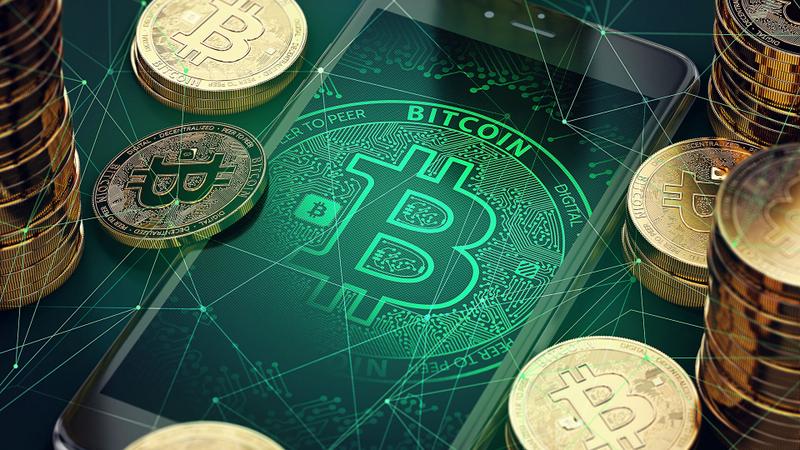Bitcoin, Ethereum, Dogecoin: Cryptocurrencies are booming. For many average Otto users, however, the crypto world is still a closed book. That’s why we clarify the most important terms.
What does mining mean, what is the proof of work concept, who is Tominaga Nakamoto and why does every crypto owner need a wallet? These and other questions are explained in the second part of the cryptocurrency important and big basics.
Libertarianism
Cryptocurrencies have many supporters, especially among supporters of radical liberal views. This is not surprising, as Bitcoin and other coins promise to make central entities such as banks or central banks superfluous. Some even dream that blockchain applications could eventually abolish the state. However, it is also clear that states are increasingly trying to regulate cryptocurrencies or create their digital currencies.
Mines
Bitcoin and many other cryptocurrencies are created through what is known as mining. That is, to create bitcoins, computers perform complicated and energy-intensive arithmetic operations. Initially, even private users could mine bitcoins, but those days are long gone.
Nft
NFTs (Non-Fungible-Tokens) are digital works (music, images, software, but also tweets or video clips) that are declared to be originals with the help of cryptographic processes. NFTs can also be traded. Twitter founder Jack Dorsey’s first tweet recently sold for $2.9 million. NFT is getting a boom particularly in the art world.
Proof Of Work
The digital coins, are based on the Proof of Work concept. To put it simply, this is where money is made from electricity. The problem with this is the high energy consumption, which recently led Elon Musk to ban Bitcoin payments for Teslas. There are several alternatives to the Proof of Stake concepts, such as Proof of Burn, Proof of Space, or Proof of Time, all of which have their pros and cons.
Also read about: What is Decentralized Finance (DeFi)?
Regulation
With cryptocurrencies, there are many legal and tax issues that remain unresolved. Above all, however, cryptocurrencies are often used for money laundering or to pay the ransom after attacks with blackmail Trojans. The USA, for example, would like stricter requirements for crypto exchanges.
Smart Contract
Smart contracts are computer protocols that replicate contracts and also immediately check whether these contracts are being complied with. These are strored in the blockchain. Such smart contracts are used, for example, in product chains to order and pay for goods automatically.

Staking
Staking means that cryptocurrencies are held back and the owner is rewarded for doing so. For example, you can stake Ethereum and get 5 to 7% interest per year on the Kraken platform. The downside: you can’t exchange the insoles at first. With other cryptocurrencies, however, you can dispose of the staked assets reasonably flexibly.
Tominaga Nakamoto
Tominaga Nakamoto was a Japanese philosopher and may have been the inspiration for the pen name Satoshi Nakamoto. He is known as the inventor of bitcoin. Who is behind Satoshi Nakamoto is one of the greatest mysteries of our time. Among other things, it is speculated that Satoshi Nakamoto has long been dead or that it is a whole group.
Loss
Forgotten passwords lost USB sticks: It is estimated that around 20% of all existing bitcoins have been lost or are no longer accessible. Cryptocurrency traders should keep their wallet paraphrase in a safe place. It can also be useful to stamp the words onto aluminium plates so that they can survive a house fire.
Wallet
The wallet is the purse in which you keep your cryptocurrencies. Meanwhile, your wallet is also the access point to all kinds of decentralized financial markets (Defi). The wallet may gain in importance in the future, even beyond the pure purse function. Some experts are already talking about Web 3.0 with your wallet as the central hub.
XRP
XRP is the abbreviation for the cryptocurrency “Ripple”, a cryptocurrency that has existed since 2012. The company that operates Ripple plans to go public soon.
ZCash
The cryptocurrency ZCash was launched in 2016 and is said to be particularly privacy-friendly. The transfers via Bitcoin price are no moreby any means anonymous, but can be called as pseudonymous. That means: They can be traced back and the blockchain forgets nothing.

